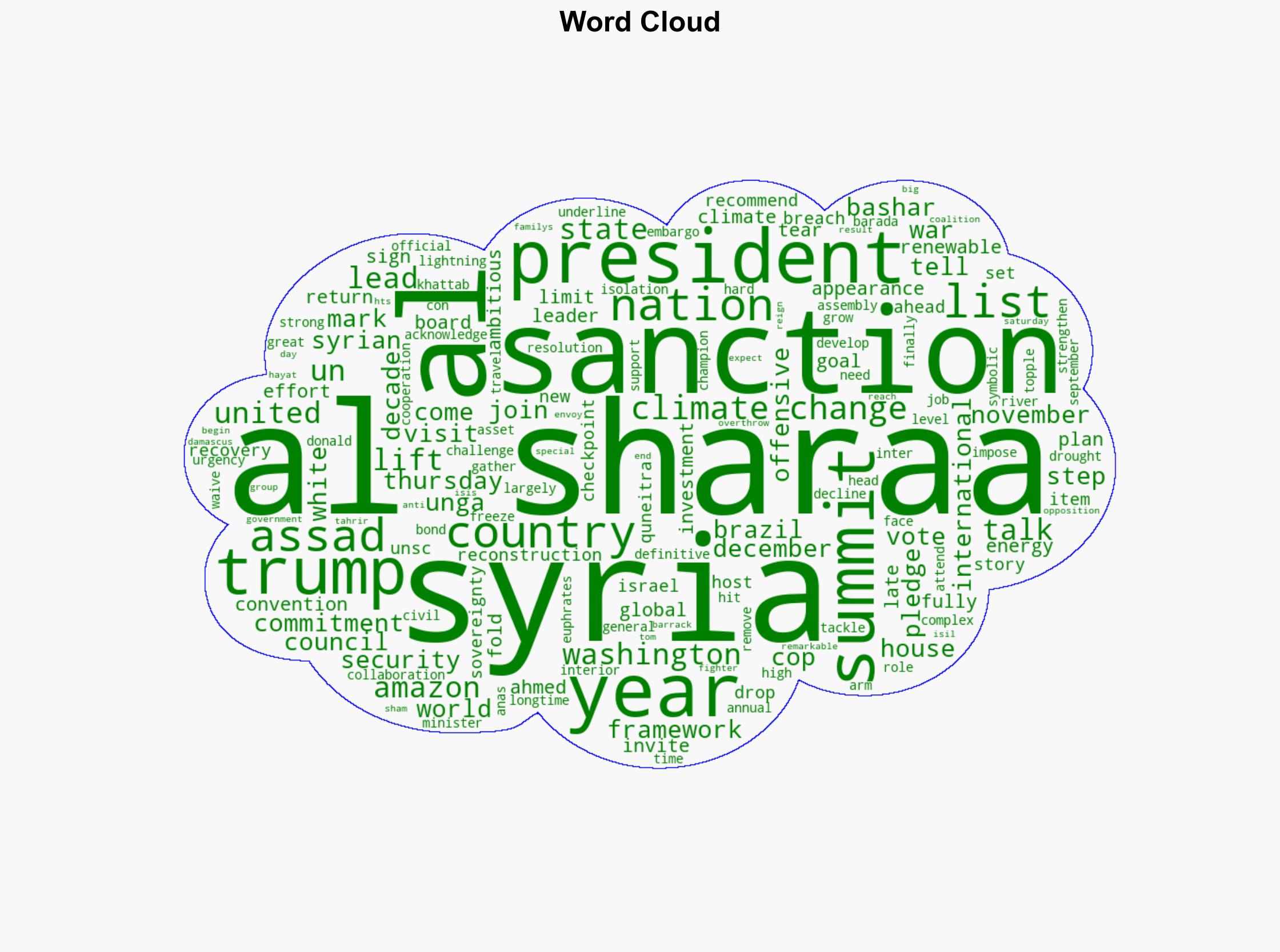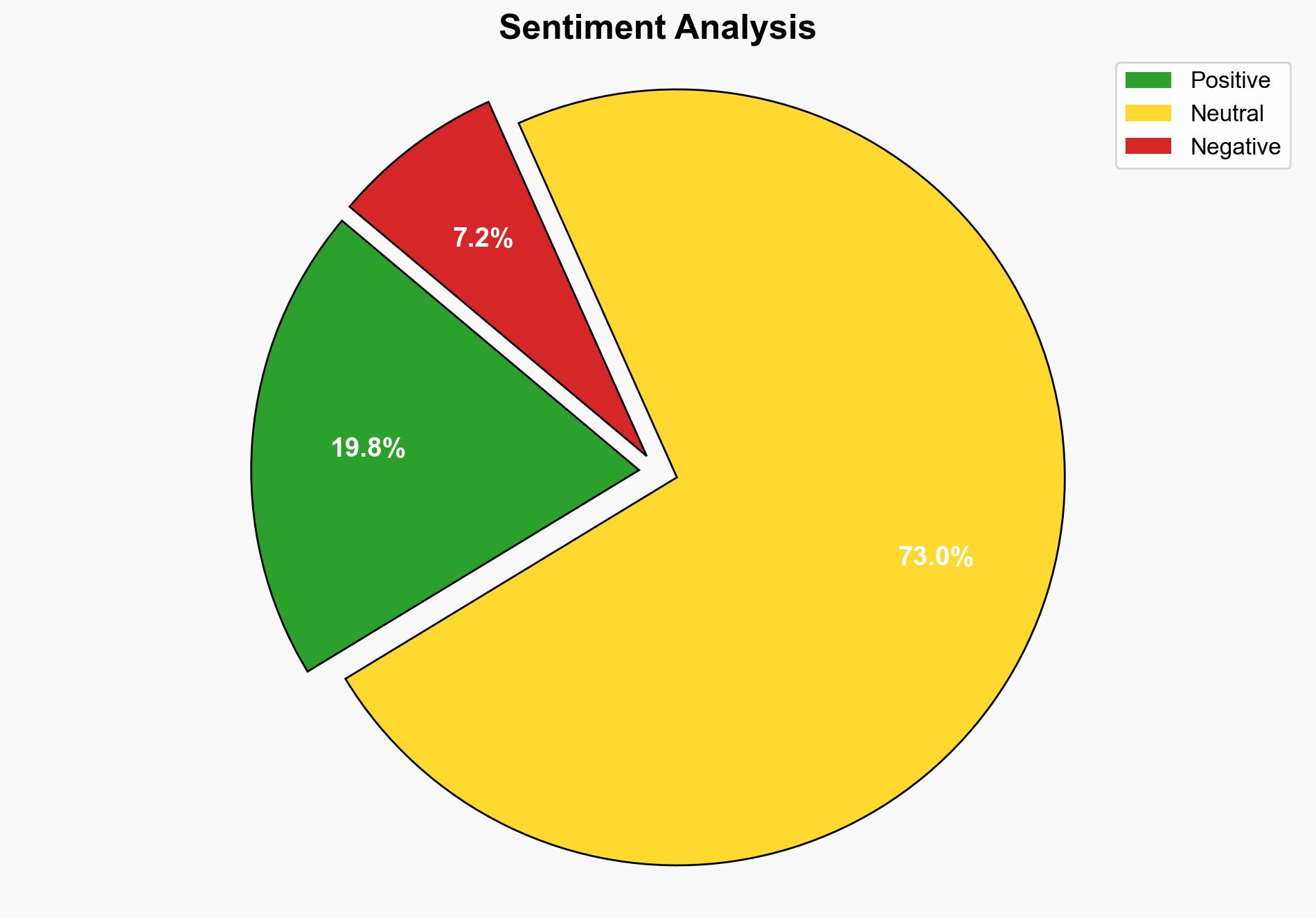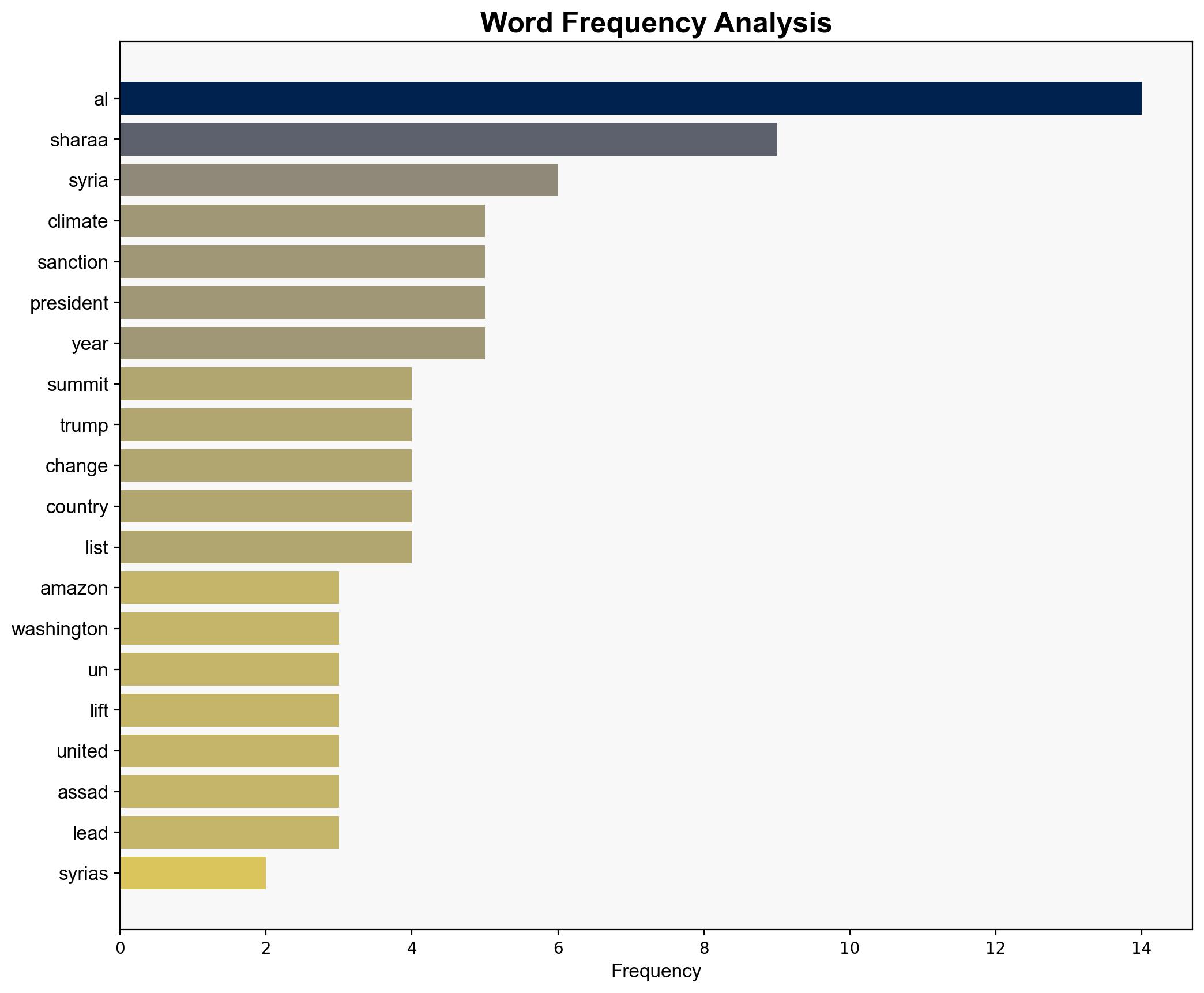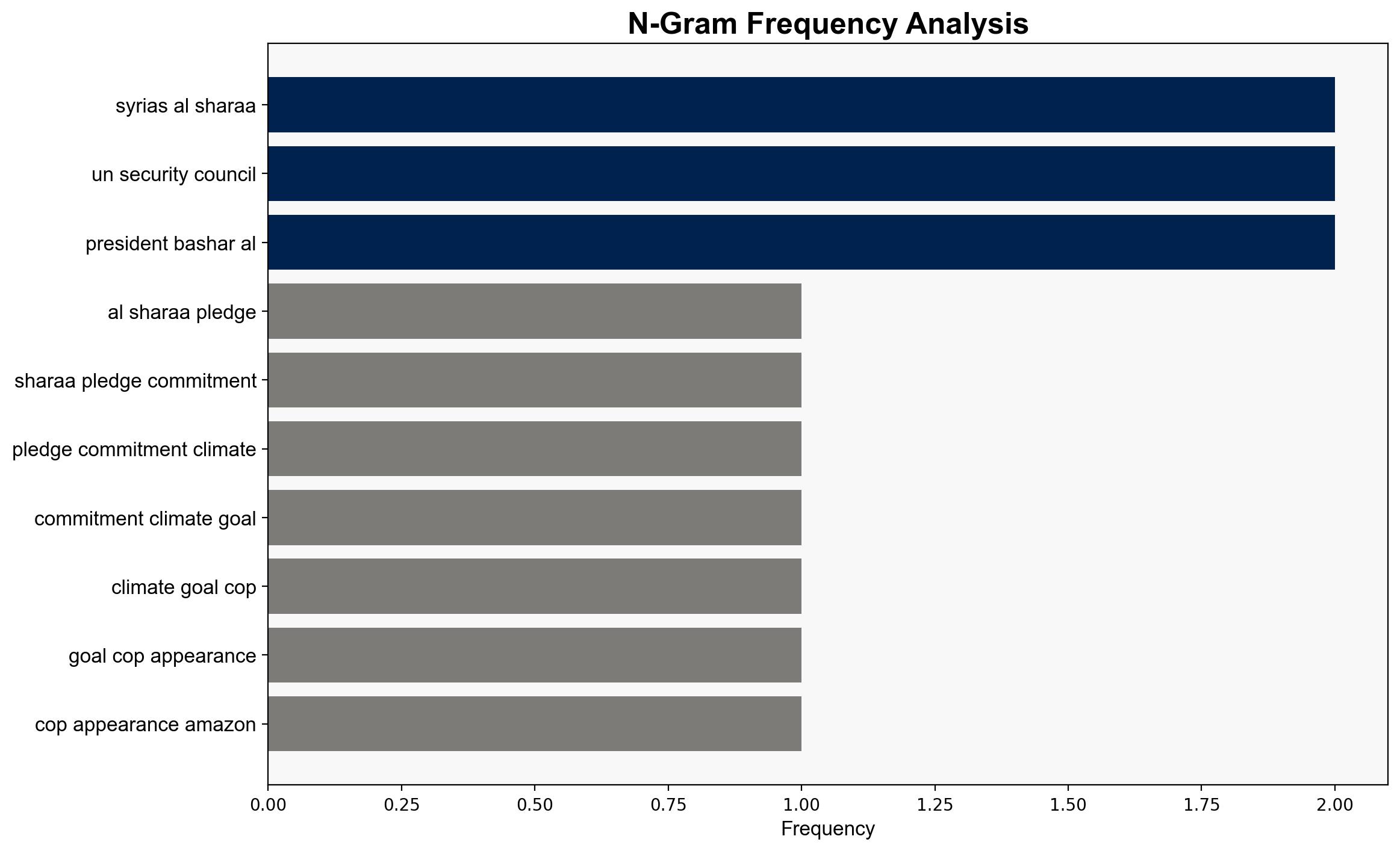Syrias al-Sharaa pledges commitment to climate goals at COP30 – Al Jazeera English
Published on: 2025-11-07
Intelligence Report: Syrias al-Sharaa pledges commitment to climate goals at COP30 – Al Jazeera English
1. BLUF (Bottom Line Up Front)
The most supported hypothesis is that Syria’s commitment to climate goals at COP30 is a strategic maneuver to reintegrate into the international community and secure economic benefits. Confidence level: Moderate. Recommended action: Monitor Syria’s follow-through on climate commitments and assess potential shifts in geopolitical alliances.
2. Competing Hypotheses
1. **Hypothesis A**: Syria’s pledge at COP30 is a genuine commitment to addressing climate change, driven by the severe environmental impacts experienced in the region.
– **Supporting Evidence**: Syria has faced significant droughts and environmental challenges, as highlighted by al-Sharaa’s statements at the summit.
– **Contradictory Evidence**: Syria’s historical focus has been on internal conflict and political survival rather than environmental issues.
2. **Hypothesis B**: Syria’s pledge is primarily a diplomatic strategy to end international isolation and attract foreign investment for reconstruction.
– **Supporting Evidence**: The timing of the pledge coincides with international talks and potential sanction relief, suggesting a strategic alignment with broader diplomatic goals.
– **Contradictory Evidence**: Genuine environmental initiatives may still be necessary for long-term stability and economic recovery.
3. Key Assumptions and Red Flags
– **Assumptions**: It is assumed that Syria’s leadership is capable of prioritizing climate initiatives amidst ongoing reconstruction and political challenges.
– **Red Flags**: The sudden shift in focus towards climate goals may indicate a superficial commitment aimed at gaining international favor rather than substantive policy change.
– **Blind Spots**: Lack of detailed plans or historical precedence for environmental policy implementation in Syria.
4. Implications and Strategic Risks
– **Geopolitical Risks**: Syria’s reintegration into the international community could shift regional power dynamics, particularly if sanctions are lifted.
– **Economic Risks**: Failure to deliver on climate commitments could undermine potential foreign investments and aid.
– **Psychological Risks**: International skepticism may persist, affecting Syria’s credibility and diplomatic relations.
5. Recommendations and Outlook
- Monitor Syria’s policy developments and international engagements to assess the sincerity of its climate commitments.
- Engage with regional partners to evaluate the impact of Syria’s potential reintegration on regional stability.
- Scenario Projections:
- Best Case: Syria implements genuine climate initiatives, leading to increased international support and regional stability.
- Worst Case: Syria’s commitments are superficial, resulting in continued isolation and economic stagnation.
- Most Likely: Syria makes limited progress on climate goals, using the pledge primarily for diplomatic leverage.
6. Key Individuals and Entities
– Ahmed al-Sharaa
– Anas Khattab
– Tom Barrack
– Hayat Tahrir al-Sham (HTS)
– Donald Trump
7. Thematic Tags
national security threats, geopolitical strategy, climate diplomacy, regional focus





